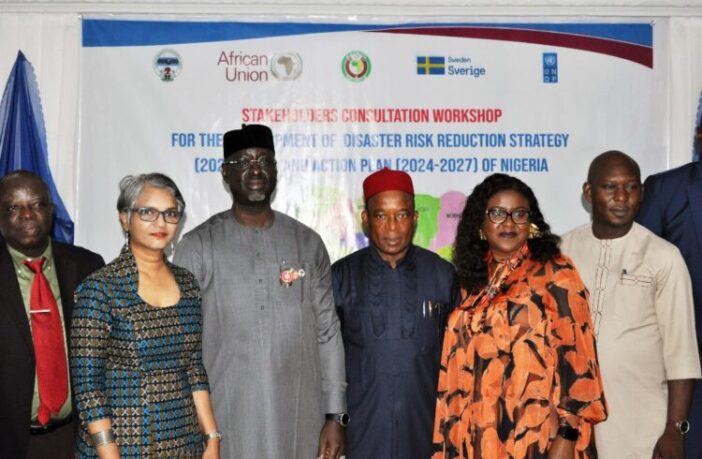The National Emergency Management Agency (NEMA), has partnered with the United Nations Development Programme (UNDP), to find a lasting solution to the flood disaster currently affecting the country every year.
Speaking at a workshop to develop a national disaster risk reduction Strategy and action plan, the director general of NEMA, Mustapha Ahmed said: “The need for the development of this plan arises from the outcomes of the assessment conducted by Overseas Development Institute on behalf of the United Nations Development Program on the Sahel Resilience Program.
“The assessment was aimed at ascertaining the status of Disaster Risk Reduction in the evaluation of the implementation of Sendai Framework 2015-2030 in the seven West African Sahel countries of Nigeria, Burkina Faso, Chad, Mali, Mauritania, Niger, and Senegal. Findings in the assessment report, indicate that in furtherance to the plans and frameworks so far produced by the National Emergency Management Agency, it is necessary to develop comprehensive document for Disaster Risk Management for Nigeria.
“This plan is also very critical in enabling Nigeria to align with and drive the targets of the Sendai Framework and the African Program of Action on Disaster Risk Reduction.”
The NEMA DG further said the recent escalation and growing frequency and severity of disasters in form of banditry, boat mishaps, building collapse, urban and market fires coupled with hydro-meteorological hazards powered by climate change and climate variability have ignited the compelling desire to develop the Nigeria Disaster Risk Management Plan.
While speaking, the UNDP Sahel resilience project manager in Nigeria, Dr Reshmi Theckethil said: ” almost half of Nigeria’s population, or 91 million people, faces multidimensional poverty. Communities are being impacted by environmental and health hazards like droughts, floods, epidemics, and man-made disasters such as oil spills and terrorism. Challenges from rapid population growth, urbanization, and socio-political issues often contribute to conflicts, violence, and increased insecurity.
“Throughout the years, Nigeria has experienced 440 disasters, with several catastrophic floods, leading to tragic loss of lives and economic loss. These disasters not only damage property but disrupt crucial infrastructure, and increase the risk of diseases like cholera, diarrhea, and malaria. The financial aftermath of floods in 2012 and 2022 is staggering, amounting to billions of dollars, affecting some 12 million people.
“It is clear that sound disaster risk management at all levels (from national to local)is key to building the resilience of communities and economies to these shocks.”
NEMA, UNDP Seek Ways To Tackle Disaster In Nigeria
Share.




